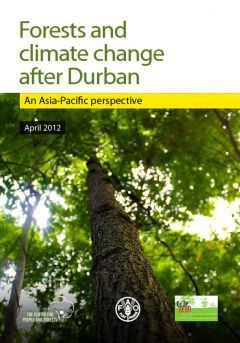Location
RECOFTC
RECOFTC is derived from an abbreviated form of the organization's legal name, Regional Community Forestry Training Center for Asia and the Pacific. Formerly the organization was known as RECOFTC – The Center for People and Forests.
RECOFTC – The Center for People and Forests is an international not-for-profit organization that focuses on capacity building for community forestry in the Asia Pacific region. It advocates for the increased involvement of local communities living in and around forests - some 450 million people in Asia-Pacific - in the equitable and ecologically sustainable management of forest landscapes.
The Regional Community Forestry Training Center for Asia and the Pacific (RECOFTC) opened in Bangkok, Thailand, in March 1987 with support from the United Nations Food and Agriculture Organization, the Government of Switzerland (through the Asian Development Bank), and Thailand's Kasetsart University.
Community forestry is widely acknowledged as a powerful solution for many of the challenges facing local people and the wider society, especially in improving rural livelihoods, enhancing community governance and empowerment, transforming forest-related conflict, protecting and enhancing the environment, and helping to fight climate change. As a capacity-building organisation, RECOFTC improves the ability of people and organisations to conduct community forestry effectively and sustainably.
RECOFTC works toward its mission through four thematic areas:
- expanding community forestry
- people, forests and climate change
- transforming forest conflict
- securing local livelihoods.
Members:
Resources
Displaying 316 - 320 of 485Forests and Climate Change After Durban: An Asia-Pacific Perspective
Over the past two years, the Food and Agriculture Organization of the United Nations (FAO) and RECOFTC – The Center for People and Forests have brought together regional experts to reflect on the outcomes of the 15th and 16th Conference of the Parties (COP) to the United Nations Framework Convention on Climate Change (UNFCCC).
Putting Free, Prior, and Informed Consent into Practice in REDD+ Initiatives
The principle that indigenous peoples and local communities have a right to give or withhold their Free, Prior, and Informed Consent (FPIC) to developments affecting natural resources is not new. However, experience using FPIC in REDD+ implementation is still limited in the Asia-Pacific region, and there are few materials that explain and train practitioners in its concepts and practice. There is still subjective understanding of the terms and requirements of FPIC, influenced by both cultural interpretations and interests.
Putting Free, Prior, and Informed Consent into Practice in REDD+ Initiatives
The principle that indigenous peoples and local communities have a right to give or withhold their Free, Prior, and Informed Consent (FPIC) to developments affecting natural resources is not new. However, experience using FPIC in REDD+ implementation is still limited in the Asia-Pacific region, and there are few materials that explain and train practitioners in its concepts and practice. There is still subjective understanding of the terms and requirements of FPIC, influenced by both cultural interpretations and interests.
Putting Free, Prior, and Informed Consent into Practice in REDD+ Initiatives
The principle that indigenous peoples and local communities have a right to give or withhold their Free, Prior, and Informed Consent (FPIC) to developments affecting natural resources is not new. However, experience using FPIC in REDD+ implementation is still limited in the Asia-Pacific region, and there are few materials that explain and train practitioners in its concepts and practice. There is still subjective understanding of the terms and requirements of FPIC, influenced by both cultural interpretations and interests.
REDD+ Safeguards for Vietnam: Key Issues and the Way Forward
This brief seeks to highlight the importance of developing REDD+ safeguards in Vietnam now. In addition, it is intended to identify key issues to be addressed by these safeguards, and to propose a way forward for the development of a nationally appropriate REDD+ safeguard process in Vietnam that responds to the seven safeguards defined by the UNFCCC; fits the country's particular circumstances; and includes the whole spectrum of REDD+ stakeholders in Vietnam.




